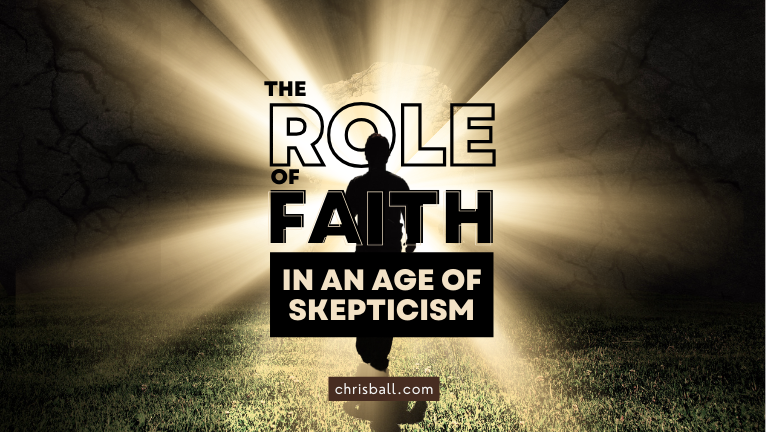In an era where skepticism often takes centre stage, where every claim and belief is put under the microscope of scientific scrutiny, faith might seem, to many, like an antiquated relic. Yet, Søren Kierkegaard, the Danish philosopher and theologian, posited that faith is not only relevant but essential, particularly as a counterbalance to despair. His perspective offers both solace and challenge in our secular, scientifically driven age, encouraging a profound reflection on the role of faith in modern life.
Kierkegaard’s exploration of faith was not about dismissing rational thought or scientific inquiry. Instead, he presented faith as a leap – a conscious choice that goes beyond the limitations of logic and reason. For Kierkegaard, faith was the antidote to despair, a despair that arises from the realisation of our limitations and our inability to find ultimate meaning in life through reason alone. This is particularly resonant today, in a time when the vast expanse of knowledge available to us can seem as much a burden as a blessing, leading to what some describe as analysis paralysis or the malaise of modernity.
In this context, faith, according to Kierkegaard, doesn’t ask us to abandon reason but to recognise its limits. It invites us to make a leap into the unknown, to embrace uncertainty, and to find solace in the belief that there is more to existence than can be measured or comprehended by the human intellect. This leap of faith is not a blind plunge into the darkness but a conscious choice to believe in something beyond ourselves, something that gives our lives meaning and direction in the face of life’s inherent absurdities.
Kierkegaard’s view of faith challenges the modern sceptic and the secular mind. It suggests that the purely rational life, devoid of any leap of faith, is a life that risks being caught in the despair of meaninglessness. His concept of faith asks us to confront this despair head-on, not by denying it through distraction or dogma, but by choosing to believe in spite of it. This choice to believe, to have faith, is what Kierkegaard sees as the essence of being human.
Today, when scepticism often seems the default mode of thinking, when faith is frequently dismissed as naïve or unscientific, Kierkegaard’s ideas invite us to reconsider. They suggest that faith might be an essential element of the human condition, a necessary counter to the despair that can arise in a world that often feels indifferent to our search for meaning. This perspective doesn’t diminish the value of scientific understanding but places it within a broader context of human experience—one where faith has a vital role to play.
For those navigating the complexities of modern life, Kierkegaard offers a compelling viewpoint: that faith, far from being an escape from reality, is a deeply rational response to the human condition. It is an acknowledgement of the limits of human understanding and a testament to our capacity for transcendence. In an age of scepticism, faith can be a radical act of defiance against despair, a declaration that there is hope and meaning to be found, even in the face of life’s most perplexing questions.
